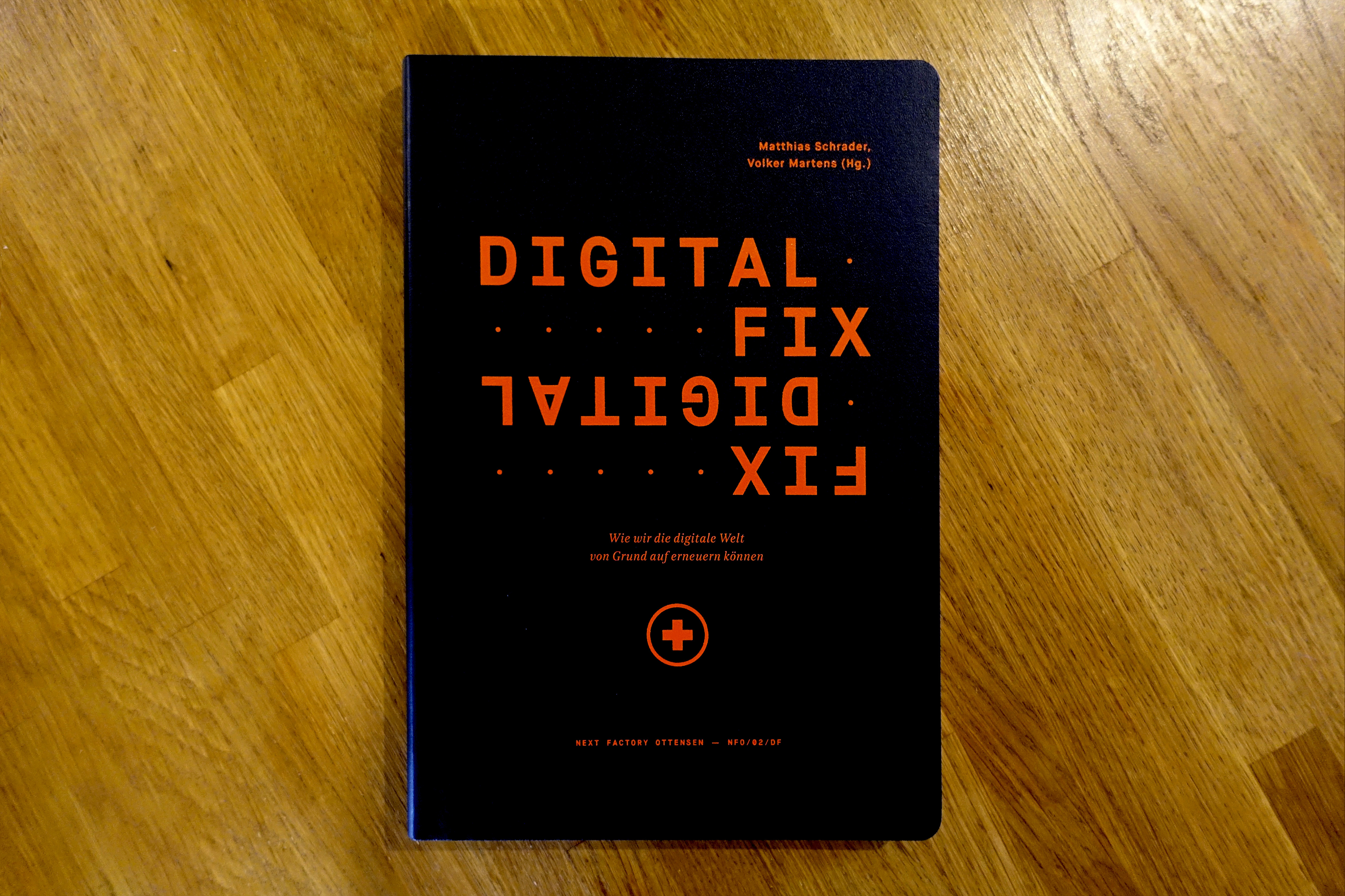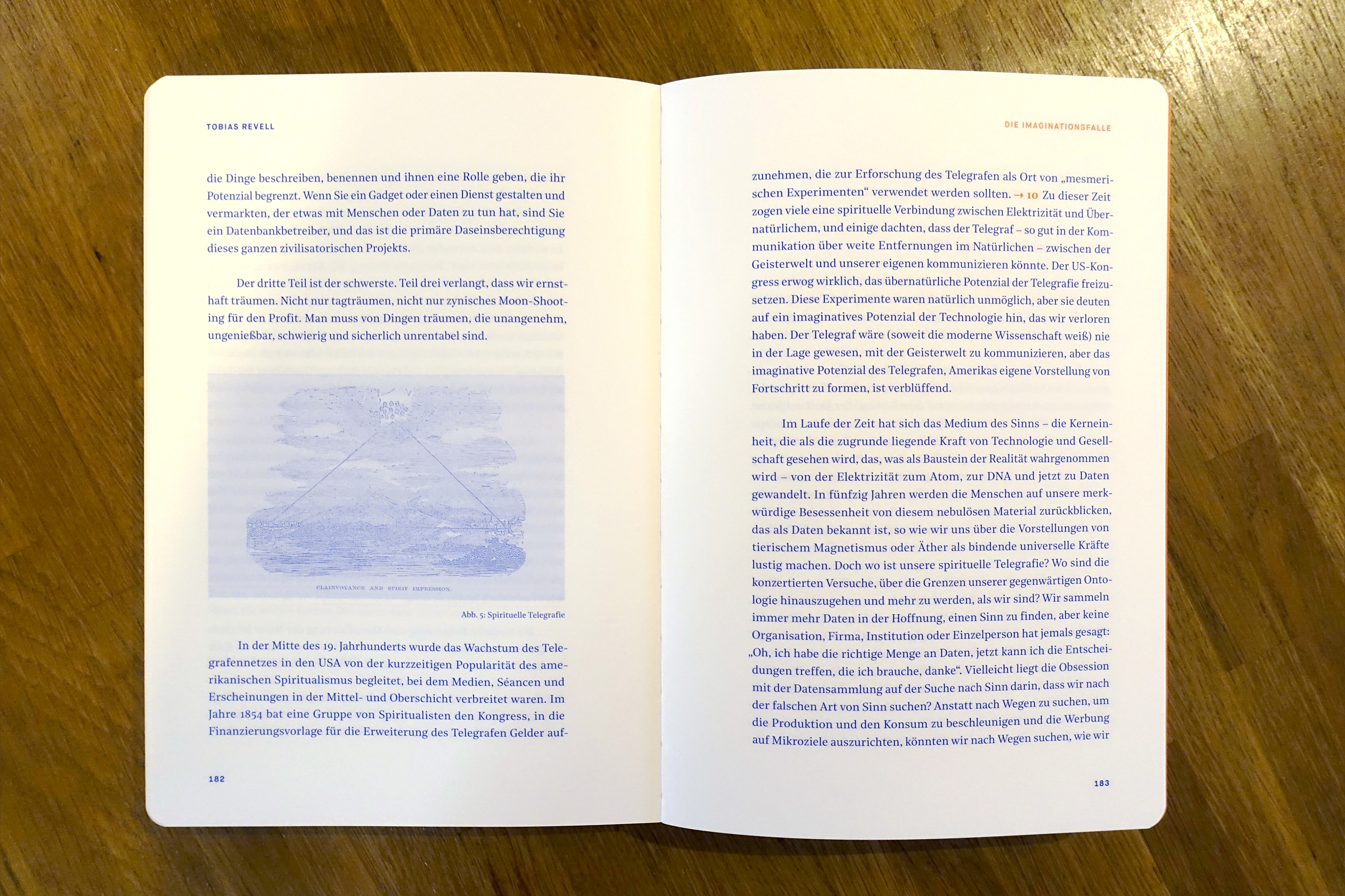


The Imagination Trap – An essay for NEXT 2018's publication 'Digital Fix' available in German here and Enligsh e-book here.
The essay addresses the struggle of critical practice in building compelling narratives for engagement with technological and political change. The essay questions the inevitability of social democratic notions of 'progress' that are wrapped up in technological criticism and and critical practice and calls for alternative aspirations to be drawn out for technology as a tool for world-building and imaginative potential. Nascent in technology is the opportunity to build worlds without cars, worlds driven by principles of spiritual fulfilment rather than efficiency and productivity.
There’s a curious appeal to doomy narratives of techno-apocalypse. A couple of decades ago they were generally relegated to the ostracised genre of science fiction literature and cinema, but they have gradually crept into the mainstream, becoming a dominant staple of popular culture. The enormous success of Black Mirror gives a popular voice to dark technological criticism where before there was only the unprovable tech-demo optimism of shows like Tomorrow’s World. It’s a buyer’s market for catastrophes. And as the apocalypses multiply and seep out into popular consciousness so do the analyses – why are we suddenly so obsessed with our own demise as a civilisation or a species?
...
Look at the recent successes of Trump and Brexit, both held up by all sorts of thinkers as landmark events where the supposed ship of progress was blown wildly off-course – where the post-Cold War inevitability of European social-democratic values of progress were dragged to a halt. Could we look at these events and the dozens like them and speculate that endlessly critiquing and problematising actually alienates people? That in a world of climate collapse, mass surveillance, mental health crises, precariarity and anxiety that picking more holes, adding more complexity, highlighting more ways in which things might go wrong is not what the world wants? That faced with the choice of lefty Guardianista polemicist like myself prevaricating around an explanation with ‘well.. it’s problematic and complex and entangled and partly your fault’ versus a bristling demagogue pointing and shouting ‘It’s their fault, let’s get rid of them’ or ‘buy/do this one thing and everything will be better’ there’s really very little contest for most folk? Most people have lots of things to worry about already.
...
This is where the apocalyptic fantasy comes in; that perhaps rather than tackling the overwhelming scale and complexity of the monstrous reality we’re in, it’s more comforting to imagine the Etch-a-Sketch erasure of a biblical apocalypse to just put us all back to zero and start again. The ‘reality-based community’ of the critical classes has analysed and unpacked so thoroughly that it’s forgotten how to tell a good story - but Hollywood hasn’t. And again, to reiterate for perspective, this isn’t just now. The 21st century is the most vein century. Everything right now appears to be incredibly important, but we’ve always had complexity and social threats – from a civilizational perspective we’re in a period of remarkable peace and prosperity. However, can we do more than resist, critique and problematise? Faced with the dissatisfaction of market driven demagoguery and hesitant criticality, there’s a real need to imagine and build. In the words of Nick Srnicek and Alex Williams you can’t ‘resist new worlds into being.’
09.2018
The essay addresses the struggle of critical practice in building compelling narratives for engagement with technological and political change. The essay questions the inevitability of social democratic notions of 'progress' that are wrapped up in technological criticism and and critical practice and calls for alternative aspirations to be drawn out for technology as a tool for world-building and imaginative potential. Nascent in technology is the opportunity to build worlds without cars, worlds driven by principles of spiritual fulfilment rather than efficiency and productivity.
There’s a curious appeal to doomy narratives of techno-apocalypse. A couple of decades ago they were generally relegated to the ostracised genre of science fiction literature and cinema, but they have gradually crept into the mainstream, becoming a dominant staple of popular culture. The enormous success of Black Mirror gives a popular voice to dark technological criticism where before there was only the unprovable tech-demo optimism of shows like Tomorrow’s World. It’s a buyer’s market for catastrophes. And as the apocalypses multiply and seep out into popular consciousness so do the analyses – why are we suddenly so obsessed with our own demise as a civilisation or a species?
...
Look at the recent successes of Trump and Brexit, both held up by all sorts of thinkers as landmark events where the supposed ship of progress was blown wildly off-course – where the post-Cold War inevitability of European social-democratic values of progress were dragged to a halt. Could we look at these events and the dozens like them and speculate that endlessly critiquing and problematising actually alienates people? That in a world of climate collapse, mass surveillance, mental health crises, precariarity and anxiety that picking more holes, adding more complexity, highlighting more ways in which things might go wrong is not what the world wants? That faced with the choice of lefty Guardianista polemicist like myself prevaricating around an explanation with ‘well.. it’s problematic and complex and entangled and partly your fault’ versus a bristling demagogue pointing and shouting ‘It’s their fault, let’s get rid of them’ or ‘buy/do this one thing and everything will be better’ there’s really very little contest for most folk? Most people have lots of things to worry about already.
...
This is where the apocalyptic fantasy comes in; that perhaps rather than tackling the overwhelming scale and complexity of the monstrous reality we’re in, it’s more comforting to imagine the Etch-a-Sketch erasure of a biblical apocalypse to just put us all back to zero and start again. The ‘reality-based community’ of the critical classes has analysed and unpacked so thoroughly that it’s forgotten how to tell a good story - but Hollywood hasn’t. And again, to reiterate for perspective, this isn’t just now. The 21st century is the most vein century. Everything right now appears to be incredibly important, but we’ve always had complexity and social threats – from a civilizational perspective we’re in a period of remarkable peace and prosperity. However, can we do more than resist, critique and problematise? Faced with the dissatisfaction of market driven demagoguery and hesitant criticality, there’s a real need to imagine and build. In the words of Nick Srnicek and Alex Williams you can’t ‘resist new worlds into being.’
09.2018